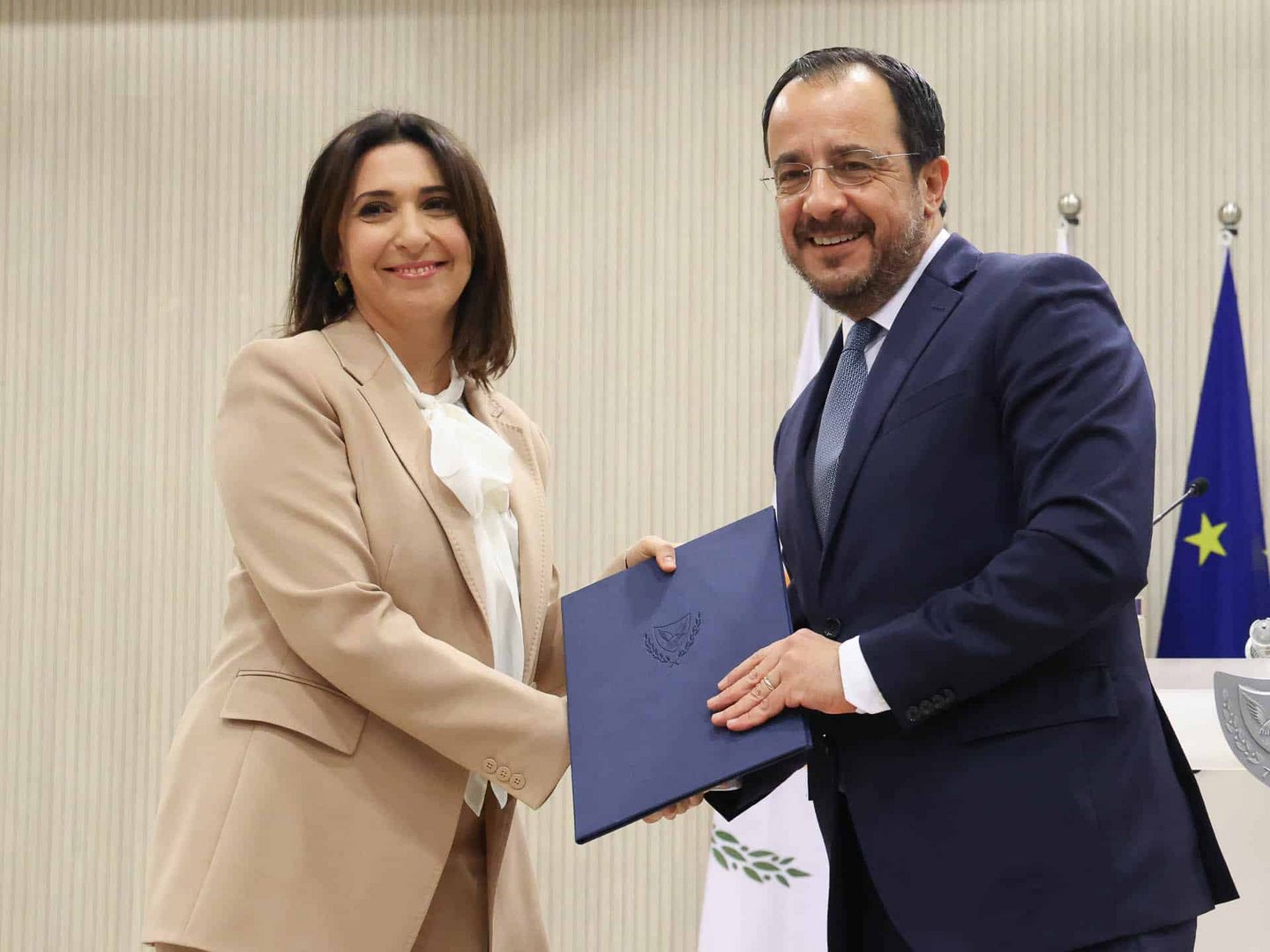Cyprus’ forthcoming term as the holder of the European Council’s rotating presidency in the first half of next year is “a unique opportunity for our country to leave its own mark on the European Union”, European Affairs Deputy Minister Marilena Raouna said on Friday.
Addressing permanent secretaries of ministries and deputy ministries, she said she is “part of the same team” as the European Council’s secretary-general Therese Blanchet, and that together, “we are working towards the same common goal: a well-prepared and well-organised presidency”.
“We all recognise that the European Council’s presidency is a huge challenge which requires excellent coordination and a deep understanding of the matter and its requirements,” she said, adding that she hopes Friday’s meeting will “highlight the commitment to timely and proper preparation”.
“The conduct of a successful presidency for Cyprus is a national goal and a top priority for the government and for President Nikos Christodoulides,” she added.
She went on to say that when Cyprus takes on the presidency at the beginning of next year, the island will “represent the 27 member states, taking a leading role in promoting the European agenda”.
“Our aim is to exercise the presidency by acting as honest mediators, representing the interests of all member states, and promoting consensual solutions to the critical issues that the union will have to manage, for a stronger, more resilient, more competitive, and more socially cohesive Europe, close to its citizens,” she said.
She added that she hopes Cyprus’ presidency of the European Council will “highlight Cyprus’ geopolitical role as an anchor of stability and security in the eastern Mediterranean”, which in turn will “strengthen the country’s position as a bridge between the EU and the wider region”.
The European Council’s rotating presidency is currently held by Poland, which succeeded Hungary at the beginning of the year. Denmark will hold the presidency in the second half of this year, before it will be Cyprus’ turn to undertake the role.
Poland, Cyprus and Denmark in December submitted a joint working programme to the European Commission, creating a “trio” of presidencies.
Polish ambassador in Nicosia Marek Szczepanowski had spoken about the “trio” in January, saying the trio’s programme “has been carefully designed around the goals of a strong and secure Europe, a prosperous and competitive Europe and a free and democratic Europe”.
He added that the “trio” is “an example of power and diversity within the European Union”.
“The cooperation between Poland and Cyprus in particular offers a unique perspective, as both countries bring valuable experiences shaped by their different geographical positions and historical contexts,” he said.
To this end, he said that the two countries, “despite being geographically distant, face many similar challenges arising from their proximity to conflict zones”.
Later, he had outlined the seven pillars of his country’s tenure – foreign affairs, the EU’s internal affairs, information issues, the economy, energy, food and health.
He began by speaking about foreign affairs, saying, “a Europe must be built which is ready to face any threats, especially from the east”.
He also stressed the need to “continue the support for Ukraine”, adding that this year will be “a decisive year” for the war in the country.
Then, he touched on the matters of irregular migration, the climate crisis and cybersecurity and disinformation, saying the EU “must be able to face hybrid threats”.
On the economy, he said there are 32 million businesses in the EU and that small and medium-sized businesses “must be helped to grow and become competitive”, while also calling for the bloc to have a “resilient agricultural sector”.
He then made reference to plans to boost mental healthcare, particularly among children and adolescents and to ensuring the safety of medicines.
Looking ahead to Poland’s six-month tenure as European Council president, he said his country will host a total of 22 informal European Council summits and over 300 events, conferences and workshops.






Click here to change your cookie preferences